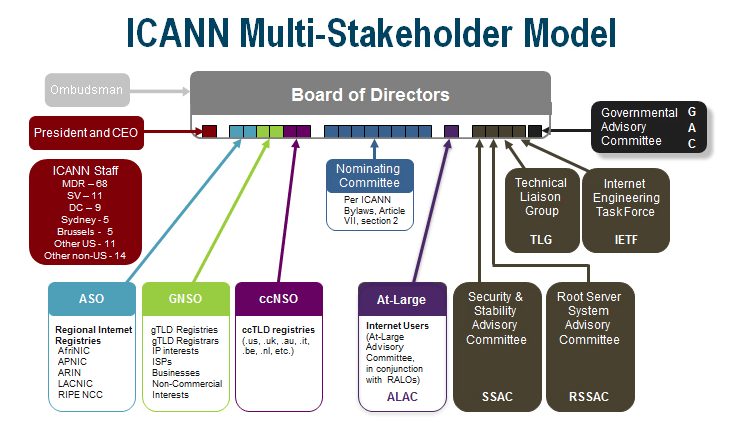Is ISIS a Threat to World Web Security?
In response to the air strikes and military presence brought about by the United States, the FBI has issued a warning that ISIS and other extremist groups may initiate cyber attacks in retaliation. While they are stating that the recent threats are “nonspecific and probably aspirational”, there are several reasons why Americans should be concerned for their Internet security.
Terrorist Funding
Bringing in as much as $3 million per day in revenue, ISIS is officially one of the richest terrorist groups in history. According to US intelligence officials, the organization receives a great deal of money from wealthy donors, mafia-like looting, levying taxes on the areas it takes over, and the proceeds from about a dozen oil fields that they have captured in the Middle East.
While operating a caliphate is expensive, many governing officials are becoming increasingly aware of the billions that the Islamic State currently has in their possession. While they may not have the technological abilities to act out a large cyber attack themselves, they certainly have the funding to potentially outsource a destructive online occurrence.
ISIS’s Threats and Actions Through Social Media
ISIS is no stranger to social media. The terrorist organization has used it to recruit members, instill scare tactics, and distribute other terrorist information. According to the FBI, there have been four potential threats made to the United States through twitter mentioning cyber attacks:
- At the beginning of 2014, @AnonArabObs stated his support for ISL, and offered guidance in making use of several hacking tools. He also made the call for cyber attacks in both Israel and the United States.
- Tunisian Hackers Team, which is a well-known hacktivist group, threated a DDoS (Distributed Denial of Service) attack on America’s financial sector. A DDoS attack is one where it prohibits authorized users from accessing machines or network resources, and they have said that they would activate this assault unless US troops were extracted from Islamic lands.
- One of the most well known hackers over the pond is Abu Hussain Al Britani, and the British media has classified him as a current ISL fighter in Syria. He had previously hacked into Tony Blair’s email account and served a six-month prison sentence in the UK back in 2012.
- In September 2014, Twitter removed several accounts that were in support of ISIL. In retaliation, user @Dawlamoon threatened several Twitter employees by name, encouraging people to take action against them.
RELATED: CoreLink Making Big Changes
In addition to these specific threats against the country as a whole, ISIS has also been known to use social media as a way to terrify the world. Some of their other well-known actions have included the beheading of American journalists James Foley and Steven Sotloff, which were filmed and posted on a file-sharing site as “Messages to America”. They have also recorded and shared several mass executions, including one of 250 Syrian soldiers in August 2014. While these executions are some of the most notable and horrific, they are just the tip of the iceberg as the number of broadcast killings by ISIS continues to climb.
Intentions With Cyber Terrorism
As the main goal of ISIS has been to take over the area between Syria and Iraq, one may wonder what they would have to gain by committing a cyber attack on the US. In addition to using an online attack as retaliation to the government, they may have a few additional motives in mind for the future.
RELATED: Do These Now and Save Money on Your Data Center
Although they currently have a large monetary structure, they may use America’s financial institutions to continue to fund their growth and expansion. Hacking into one of the country’s large banks to transfer funds could instantly bolster their cash flow.
Another reason that ISIS may seek to attack the US is to attract further awareness to their cause. As they continue to take over and control desert regions in the Middle East, they may search for new ways to show strength and power to their adversaries. According to John Cohen, the counterterrorism coordinator at the Department of Homeland Security, “ISIS is continually looking for new ways to carry out high impact visibility events to bring attention to their cause.” He goes on to speculate that, “… they are looking at the results of major cyber breaches such as Target or Home Depot and against critical infrastructure, and thinking about them as a potential avenue.”
How Other Enemy Forces Could Join In** **
While it seems that ISIS and their supporters hold the majority of the technological knowledge and ability, there is an additional risk that other ill intended countries may begin to take part in their cyber terrorism.
According to the Institute for National Security Studies, a special report was published in London in 2012 insinuating that technological information from North Korea and Iran could potentially leak to terrorist organizations. While they may not complete the actual hacking process, it is possible that they could provide information to ISIS assisting them in completing their attack.
RELATED: The Need for PCI Compliant Hosting
Protecting Yourself From Cyber Terrorism
While the largest dangers lie with large banks, corporations, and government entities, there are a few steps that you can take in order to protect yourself from potential hacks and cyber harassment. The FBI recommends taking the following precautions to protect your information and assets:
-
Have a backup strategy for any proprietary or sensitive data. It is a good idea to keep backup copies offsite in a secure location that are not available to access from local networks.
-
Analyze links and email attachments prior to opening them, especially if they come from unknown senders.
-
Make sure to regularly mirror all of your critical system files and information.
-
Create and maintain strong, difficult to hack passwords. For optimum security, do not use the same password for multiple accounts or websites. You should also create and implement a schedule to regularly change your passwords for important websites.
-
When you are finished using classified data and files, make sure to back up your information and remove it from your active hard drives.
If you are concerned about cyber terrorism, one of the best ways to protect yourself is by being aware of the potential threat. If you sense a disturbance with one of your important accounts or files, do not hesitate to contact your local law enforcement to take a closer look.
Top image ©GL Stock Images




